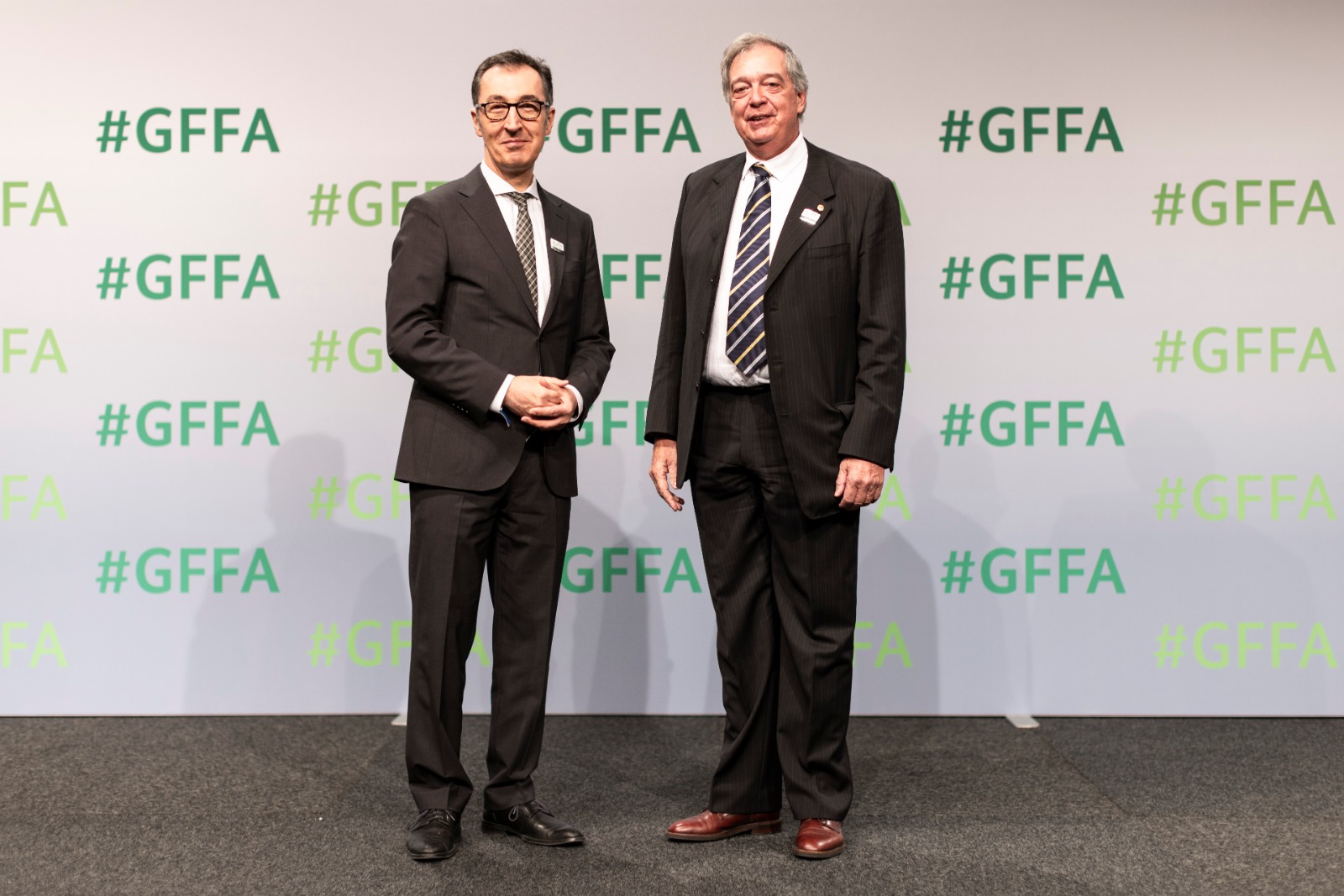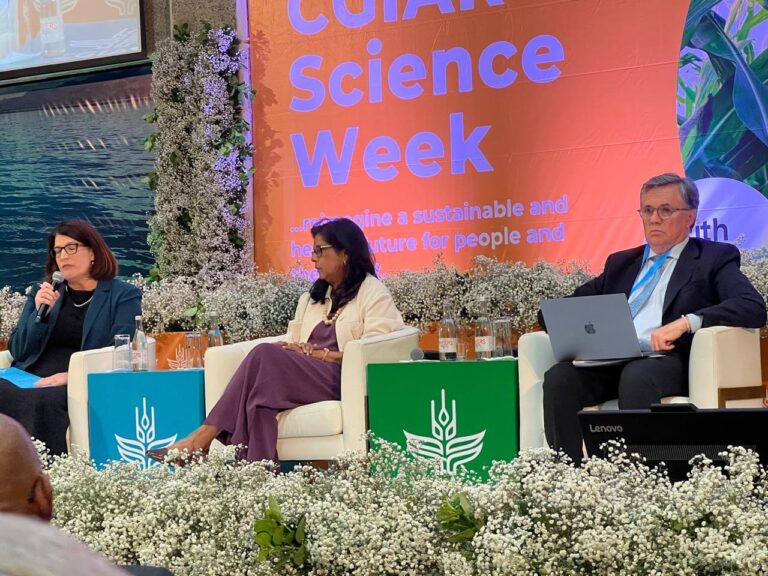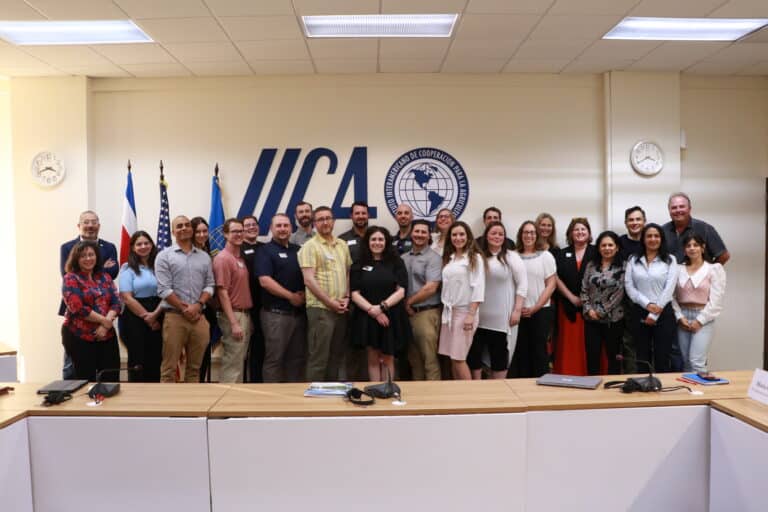El ministro de Ganadería, Agricultura y Pesca de Uruguay, Fernando Mattos, advirtió que los países desarrollados, como máximos responsables históricos del cambio climático, deben compensar a los países en desarrollo que sufren el impacto de los fenómenos climáticos extremos.

Berlin, Germany, 23 January 2024 (IICA) – The Minister of Livestock, Agriculture and Fisheries of Uruguay, Fernando Mattos, warned that developed countries, which, historically, have been primarily responsible for climate change, must compensate developing countries that suffer the impact of extreme weather phenomena.
“We ask that developed countries fulfill the commitment they assumed many years ago, to provide the necessary resources to compensate developing countries that are bearing the impact of climate variability on their agricultural production”, said Mattos at the Global Forum for Food and Agriculture (GFFA) in Berlin, which he attended alongside other Latin American ministers. This edition of the GFFA, an important conference on agricultural policy organized by the German government, brought together about 200 senior officials from around the world.
“Climate change also generates economic, social and even political instability in some cases”, added Mattos, who appreciated the participation of the Inter-American Institute for Cooperation on Agriculture (IICA) at the forum, given its role in raising the region’s voice and advocating for its interests in international forums.
Mattos, who serves as Chair of the Inter-American Board of Agriculture (IABA)—IICA’s highest governing body, comprised of the ministers of Agriculture of the Americas—underscored the importance of the region’s participation in the meeting in Germany.
“IICA’s role is very important. This is an agency comprised of 34 member countries from a region that plays a leading role in global food production. Our region produces almost one fourth of food, and it is therefore crucial for an agency that represents us to take part in such an important forum”, he explained.
Environment and productivity
“The participation of more than 65 ministers of Agriculture, authorities and international agencies makes this a very relevant forum, in which we are able not only to discuss the role of the agriculture sector in food security and environmental and productivity issues, but also to consider ways to overcome the challenge of producing amid increasing climate variability”, added Mattos.
The Uruguayan minister underscored the need to provide the agriculture sector of developing countries with resources to adapt to climate change, not only because the sector is a guarantor of food security, but also because, like other regions around the world, it is facing increasingly strong migration flows.
“There is an explanation for displacement, which is that production has become increasingly difficult due to extreme weather conditions. This not only results in production losses, but it also generates problems related to health, pests, diseases or weeds, whose repercussions are compounded by climate change”, added Mattos.
In that regard, he warned that it is crucial to provide the fields of science and research with resources to provide productive solutions through new technologies. This, in turn, will generate the stability required by the countries and producers that are most vulnerable to climate change.
In Berlin, Mattos also noted that international food trade without protectionist barriers is important for food security. “Free trade is another matter we have brought to the discussion table, and which many countries have tried to avoid. Protectionism is growing within the current context of political instability, with wars in Europe and the Middle East that generate significant difficulties in supply chains. Free trade is truly under threat, because barriers are becoming increasingly difficult to overcome and are generating difficulties for food exporting countries”.
More information:
Institutional Communication Division.
comunicacion.institucional@iica.int











